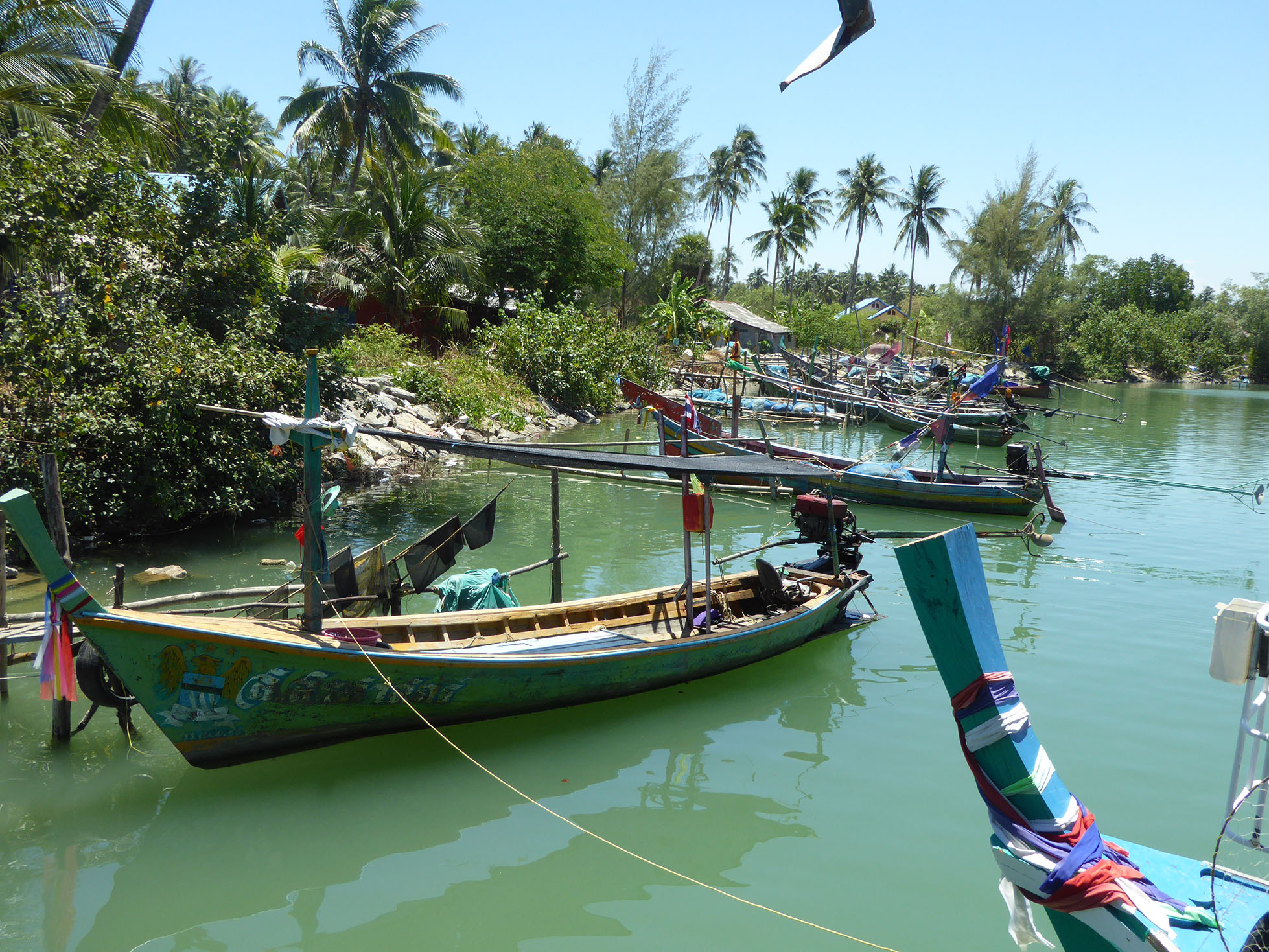In Thailand the problems of coastal erosion and flooding require immediate solutions because they affect more than 11 million people living in coastal zone communities (17% of the country’s population).
The Department of Marine and Coastal Resources (DMCR), in the Thai Government’s Ministry of Natural Resources and Environment, has calculated that each year erosion causes Thailand to lose 30 km2 of coastal land.

The Office of Natural Resources and Environmental Policy and Planning predicts that sea level will rise by 1 metre in the next 40 -100 years, impacting at least 3,200 km2 of coastal land, through erosion and flooding, at a potential financial cost to Thailand of 3 billion baht [almost £70 million] over that time-period. The Thai-coast project addresses the urgent need to enhance the resilience and adaptation potential of coastal communities, applying scientific research to inform more robust and cost-effective governance and institutional arrangements.
The Thai-coast project aims to:
- Establish causal links between climate change, coastal erosion and flooding;
- Use this information to assess the interaction of natural and social processes in order to:
- Enhance coastal community resilience and future sustainability.
The project focuses on two study areas, Nakhon Si Thammarat province and Krabi province, selected on the basis of DMCR coastal erosion data and with contrasting natural and socio-economic characteristics. The Thai-coast project uses a multidisciplinary approach, integrating climate science, geomorphology, socio-economics, health and wellbeing science and geo-information technology to improve understanding of hydro-meteorological hazard occurrence, their physical and socioeconomic, health and wellbeing impacts on Thailand’s coastal zone and the ways in which governance and institutional arrangements mitigate their impact. We will examine future scenarios of climate change hydrometeorology, coastal landform and land use change scenarios and assess and model impacts (coastal erosion, river-marine flooding, impacts on health and well-being), as well as population and community’s adaptation, and socio-economics scenarios for sustainable development goals (sustainable cities, health-related quality of life and well-being, good governance). Our collaborative team of natural and social scientists, from UK, US and Thai research institutions, have complimentary, cutting-edge expertise and will work closely with Thai Government and UK and Thai industry partners to ensure that results are policy and practice-relevant.
Thai-coast research will benefit government and policymakers, who need to plan for potential impacts caused by climate change and develop resilient strategies to deal with their impacts on natural-social systems. It will provide a link with government agencies for business/industry interests in the coastal zone of Thailand in tourism, aquaculture and associated industry and business, to assess their needs and help improve their understanding of coastal resilience in their strategic investments and management. The wider public, who inhabit Thailand’s coastal communities either permanently or temporarily for work or leisure, will benefit through the advanced knowledge and awareness of identified problems and learning processes to address them. The results of the Thai-coast project will benefit coastal communities more broadly, in all Thai coastal provinces, through its contribution to more robust, cost effective, governance and institutional arrangements.
